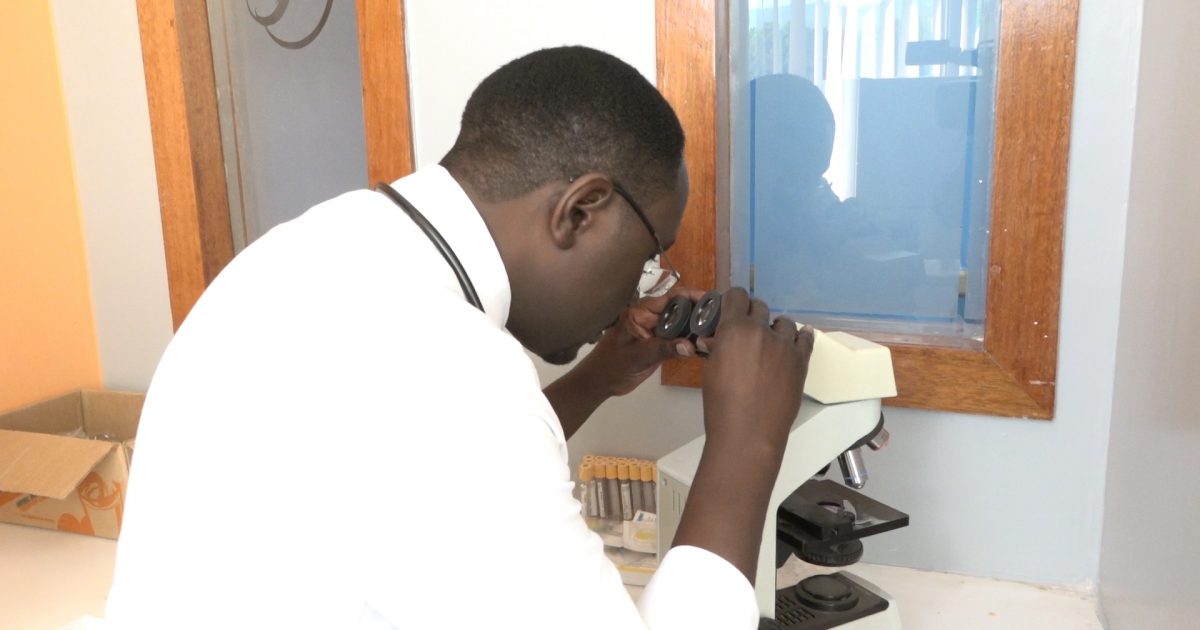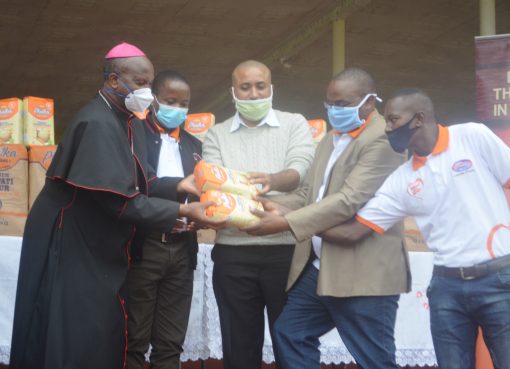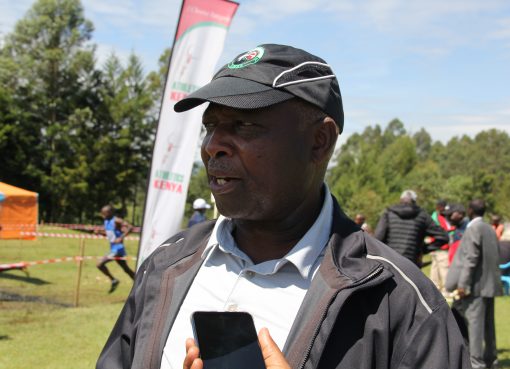Leah Wanja Kimemia is an attractive 30 year old woman who runs an interior design firm she founded four years ago.
Sometime in 2021 Ms Kimemia received an invitation from her cousin.
When they finally met the cousin who was accompanied by her husband dropped the bombshell. Would she carry a pregnancy on their behalf since the cousin did not have a uterus of her own?
In her own words, it took her two long years to digest the request and think about it.
“I asked God to help me make the right decision. It was the toughest in my life,” recalls Ms Kimemia who cannot divulge the couple’s identity.
Prior to the request the couple who are in their mid-forties wanted to adopt Ms Kimemia’s 9 year old son but she would have none of it.
Ms Kimemia discloses that she has finally made up her mind to be a surrogate mother effectively joining a growing number of young Kenyan women who are renting out their wombs to carry out other people’s pregnancies with some paid as much as Sh 2 million.
Surrogacy, which for decades has in developed nations been viewed as an option for couples who cannot naturally have babies, is gradually gaining currency in Kenya.
Those who rent out their wombs for a fee or free are known as surrogate hosts and the owner of the baby as commissioning couple or genetic parents.
The procedure is undertaken to help women who cannot conceive either due to absence of a uterus, complications due to fibroids and later myomectomy (the surgical removal of uterine fibroids), cancer of the uterus or other illnesses that may result in its removal.
Some women are born without a uterus due to chromosomal abnormality where a woman inherits only one X chromosome instead of two.
The procedure involves retrieval of eggs from a commissioning/genetic mother who is unable to carry the pregnancy and fertilising them in the laboratory using the partner’s or husband’s sperm.
The resulting embryo is then relocated into the surrogate host’s womb to carry the pregnancy to term. As soon as birth occurs, the surrogate host surrenders the baby to the commissioning couple guided by terms of a contract signed between the two parties.
Even as Ms Kimemia opts to play surrogacy, she is alive to the fact that currently, the laws and regulations regarding the procedures aren’t very clear and that can be a problem for both donors and surrogates.
For instance, she observes that those who may consider being a surrogate might not fully be entitled to all the benefits. And as a donor, there are no full guarantees when it comes to legally identifying as the child’s parent.
“According to the Kenyan law, the birth mother is legally the mother of the child and the intended parents have to go through an adoption process for the intended mother to be recognised as the mother of the child,” notes Ms Kimemia.
She says that since some couples may not come up with the money to go through the process, the baby’s birth certificate will retain the surrogate’s name as its mother.
“According to the Children’s Act, a mother is the one who gives birth to a child. The same Act provides that parental responsibility belongs to the parents. The person who gives birth has the rights over the child. So where does this leave surrogacy? Ms Kimemia poses.
She is further calling for a law that will protect surrogate mothers in event of miscarriages or death in the course of the pregnancy.
According to Dr Justus Nondi, a Consultant Obstetrician and Gynecologist at Nectar Gynecology and Fertility Center in Nakuru, the least amount a surrogate host has been paid in cases he has dealt with is Sh 200,000 but in some cases the figure has gone as high as Sh 700,000.
“We play no role in negotiation. Ours is to offer treatment once the parties agree on terms and conditions. But we first advise our clients to get relatives or friends who may do it for free.”
Surrogacy is relatively new in Kenya, with the very first one having been in 2007 and with the stigma surrounding the practice, there are no definite figures on the prevalence. However, Dr Nondi says that the use of surrogate mums is on the rise.
“Many won’t admit to going that route because they will be shunned. That is despite the fact that they are giving a wonderful gift to couples who need their help. What complicates surrogacy is the financial implications and the fact that it is legally complex,” he says.
Dr Nondi explains that requirements for a surrogate mother include: She has to have had a baby before and if married, she has to have the consent of her husband. The surrogate also has to go through psychological and medical screening for infectious diseases like HIV and Hepatitis. She must have a history of uncomplicated birth with no habit of drinking or smoking and aged between 22 to 35 years.
Surrogacy, he explains, is of two types; partial and full. “Full surrogacy is the most common. It involves the creation of an embryo by IVF using the sperm and ova of the intended parents. Partial surrogacy involves the creation of an embryo using the sperm of the intended father and the ova of the surrogate.”
“Normally, we refer clients who have considered the option to a surrogacy agency.”
Once the couple has chosen a surrogate, even though the surrogacy agency has already conducted a series of interviews with the surrogate, she goes through another round at the doctors. “We do interview the woman and background check that she is not doing it purely for the money, that it is actually for philanthropic reasons, and a lot of them want to help,” says Dr Nondi
Dr Nondi says 2 out of 10 couples in Kenya are affected by fertility, while 3 out of 10 patients visiting health facilities in Nakuru have problems with conception.
“Infertility treatment should be anchored in the primary health care so that it gets the right focus it deserves,” he suggests.
The Consultant Obstetrician and Gynecologist explains that other main causes of infertility in women are pelvic infections, sexually transmitted diseases and hormonal imbalances that impede ovulation. He adds that deformed sperms may be as a result of injury to the testicles, sexually transmitted diseases and hormonal imbalances.
Dr Nondi states that usually the commissioning parent/couple and the surrogate mother engage a lawyer to draw up a contract based on some mutual understanding.
Besides paying the fee, the surrogate mother may require the commissioning party meets the rent and subsistence cost of the host.
Some of the conditions include giving up the baby immediately after it is born, avoiding sex for the first 3 months before the surrogate host gets the embryo and not engaging in anything that may endanger the life and health of the baby.
According to lawyer Dorcas Nyambura from Kenya Ethical Legal Issues Network (KELIN), there is really no regulative measure for surrogacy thus opening up the process to corruption and other irregularities.
Ms Nyambura notes that Kenya’s unregulated surrogacy process will be streamlined if the Assisted Reproductive Technology Bill, 2019 becomes law.
The Bill sponsored by Suba North MP Millie Odhiambo seeks to entrench surrogacy and other assisted reproductive technologies such as in vitro fertilization (IVF) into the law and have the processes regulated by Assisted Reproductive Technology Authority.
“This is a Bill that seeks to provide for the regulation of assisted reproductive technology, to establish an Assisted Reproductive Technology Authority and to make provisions for children born of assisted reproductive technology processes,” Ms Nyambura explains.
On court cases over the legitimacy of the commissioning parent or parents (those who contract a surrogate) Ms Nyambura adds that the law provides that you cannot make a contract over a human being.
To solve this problem, the lawyer explains that the proposed Bill clearly stipulates that the child will belong to the commissioning parent or parents and not the surrogate. “As currently provided, registration can only be undertaken with the surrogate mother and this has posed a great challenge as the biological parents strive to undertake the legal adoption process in order to be registered as parents,” states the lawyer.
She adds, “Surrogacy is not a hypothetical issue anymore. It is real and many Kenyans are resorting to surrogacy as an alternative to being parents especially those who cannot, for medical reasons, have children. In such circumstances, it is the duty of the state to protect the children born out of such arrangements by providing a legal framework to govern such arrangements.”
Director of Nakuru Reproductive Network Mr Martin Lunalo states that he supports the Bill because it recognises surrogacy in all its forms, ensures that both the person requiring a surrogate mother’s services, the surrogate mother herself and the unborn baby are all protected and safe.
Mr Lunalo notes that the key issues that require to be addressed include the sanctity of surrogacy as a voluntary act, without coercion or commercialisation; protection of the person seeking the service from exploitation and coercion using the unborn baby.
Other issues, he says, are protection of the surrogate mother by ensuring the highest attainable standard of care preconception during pregnancy and in the post-partum period.
“The Assisted Reproductive Technology Bill, 2019, if it becomes law, will offer protection of the unborn baby from harm; and amend the registration of births to reflect parentage of the newborn as belonging to the actual mother and not the surrogate mother,” notes Mr Lunalo.
Father Clement Karathi the Parish Priest of Holy Ghost Spirit Catholic Church in Gilgil says Christianity does not advocate for surrogacy. Instead, he says that children are a gift from God, only to be conceived and carried naturally by a married husband and wife and that any addition of a third party to this process is considered immoral.
Father Karathi equates surrogacy to treating human beings as goods to be ordered, produced, and sold which he says is a severe violation of human dignity. He adds that surrogate motherhood violates the rights of the children and the dignity of women, who for various motives – especially economic hardship – are forced to sell their bodies and motherhood.
He argues that the bond between mother and child is forged during development in the womb and no one has the right to break it.
The priest posits, “Surrogacy is an offence against women. How can you “rent” the body of another human being? And how does paying the rent make you a parent? Motherhood is not merchandise and should not be for sale.”
Gibe Abdul Gibbe the Imam at Masjid Ronda Mosque maintains that surrogacy is contrary to unity of marriage and that children are gifts with their own inherent dignity – rather than goods one has the right to purchase on the open market.
Mr Gibe says no one should play God and produce human beings in reproductive centers, exploiting disadvantaged women.
He adds that surrogate motherhood offends the dignity and the right of the child to be conceived, carried in the womb, brought into the world and brought up by his own parents.
Jane Ngugi and Dennis Rasto





